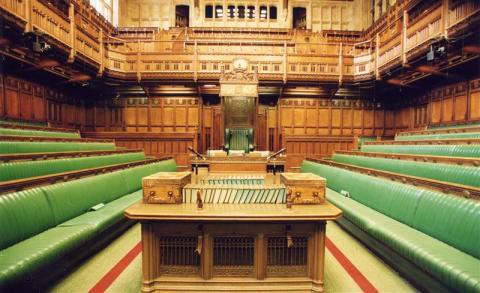The value for money regime will affect all DC pension schemes

All defined contribution (DC) pension schemes need to get ready for the new value for money (VFM) framework.
Last month, the Financial Conduct Authority (FCA) launched its consultation for contract-based pension schemes. The FCA set out proposals for a VFM regime requiring pension providers to assess their pensions according to investment performance, quality of service and costs.
The consultation proposes publicly available red, amber or green ratings for DC schemes to improve long-term value. A red rating indicates that a provider’s arrangement offers poor value; amber says the arrangement provides adequate value but could do better; and a green rating means the arrangement delivers good value.
Where an arrangement is not VFM (red or amber), firms will have to take certain actions. Where necessary, savers’ investments are to be protected by transferring to better-performing providers without savers taking direct action.
By focusing on value and not just costs and charges, the framework also aims to encourage pension providers to invest in assets that might offer greater long-term returns even though they have higher management costs.
The regime will apply across the DC pensions market
While the consultation – CP24/16 – relates to rules for FCA-regulated firms, the FCA stresses that the proposals are based on previous work with the Department of Work and Pensions (DWP) and the Pensions Regulator (TPR) and will apply across the DC workplace pensions market. The FCA has asked all interested parties, including trust-based pension providers, to respond to the consultation.
Moreover, Pensions Minister Emma Reynolds says the government wants to make pensions fit for the future through the Pension Schemes Bill and a market review so that the framework could also apply to plans regulated by TPR.
This means that trustees of occupational pension schemes will need to wait a little longer before the DWP can introduce equivalent legislation for trust-based schemes under the Bill that was announced in the King’s Speech.
That said TPR, DWP and the FCA have worked together on the VFM framework and it will deliver a consistent way to assess and compare the value achieved by both trust-based and contract-based DC schemes.
So, against this backdrop, what can we expect when the Pension Schemes Bill becomes law and new regulations are passed?
Well, in addition to the proposals in the FCA consultation, a good indicator is the government’s response to an earlier consultation on VFM – A framework on metrics, standards and disclosures, which said:
“We want trustees, providers and Independent Governance Committees to use the framework to ask themselves tough and challenging questions. Do we have the scale and expertise needed to access better outcomes? Can we compete with the biggest and best schemes in the market? Is my investment strategy diversified and seeking to take advantage of the full range of asset classes, such as infrastructure, private markets, and venture capital that have the potential to deliver higher returns for savers?
“We will not hesitate to take action against consistent underperformance, and we will require schemes to discontinue or consolidate to a better run, better performing, value for money scheme.”
The earlier consultation also suggested that the VFM framework could have implications for the future of the often criticised, prescriptive chair’s statement:
“We will therefore consider how the requirements of the chair’s statement could be managed down, and ultimately phased out as the framework is phased in.”
When the Pension Schemes Bill was announced in the King’s Speech, the briefing notes promised a “standardised test that trust-based defined contribution schemes will need to meet to demonstrate they deliver value”. The result would be fewer, better performing schemes, improved results for pension savers and more productive investment, the notes said.
The government estimated that introducing VFM, addressing small pension pots and guided retirement products could increase pension pots by about 9% for an average earner when saving during their working life.
In summary, while the government’s overarching objective is greater investment of pension scheme assets in productive finance, ministers also want to weed out underperforming schemes and encourage consolidation on a large scale.
Governance bodies of all DC pension schemes need to get ready for a new regime that makes them demonstrate value for money or discontinue and consolidate into a better-run, higher performing arrangement.
VFM should already be on trustee radars and risk registers. Trustees should also take heed of the Pensions Regulator’s latest blog calling on trust-based pensions to help shape the value framework.



